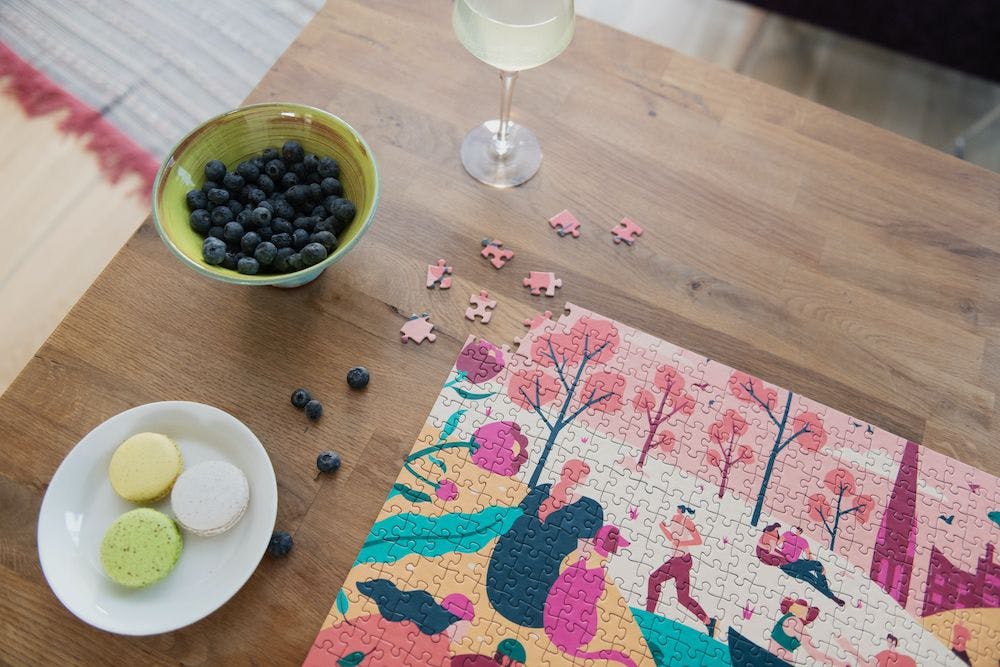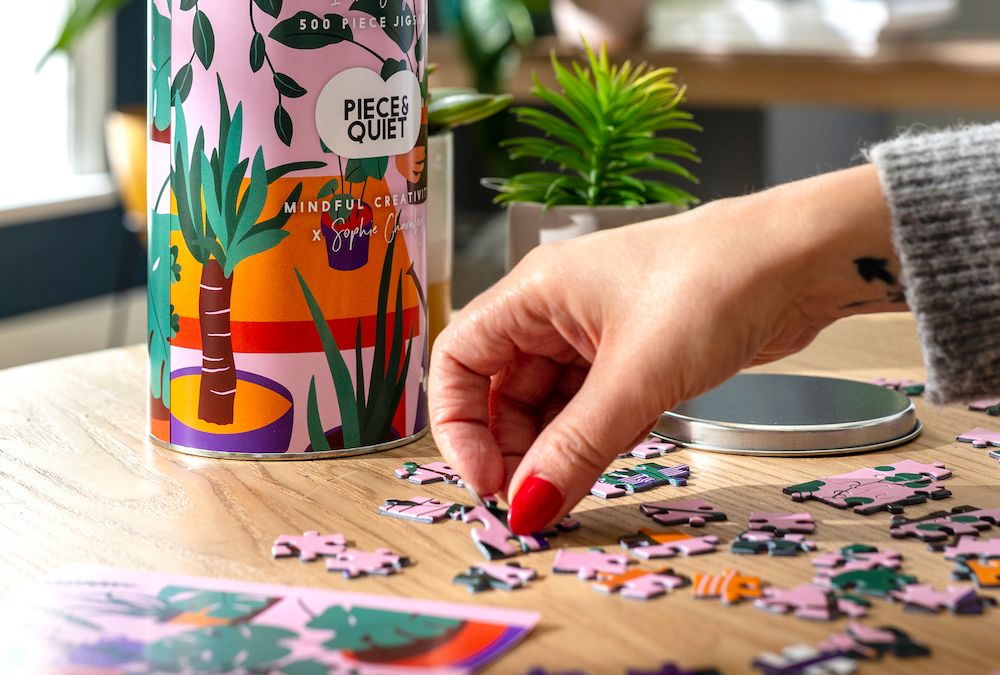
What is it that makes a simple jigsaw puzzle such an effective mindfulness practice?
It’s the rainy day classic that became a lockdown essential, and while there’s nothing new about puzzles (the first jigsaw is thought to have been created in 1762), many of us are just starting to realise the potentially mindful boost that comes with putting the pieces of a puzzle together.
Picture this: you’ve got the whole of the day ahead of you, no commitments, no meetings, no chores – the time is yours. So you sit down with a puzzle. There’s no rush, no deadline and, piece by piece, a beautiful picture starts to form in front of you. It’s a homey, mindful scene but, in lockdown, hobbies like puzzling took on a whole new meaning.
“I was furloughed in April 2020, and it struck me that I had all this extra time and nothing to fill it with,” Jody Kenny tells us, as she reflects on when she discovered her passion for puzzles. “I hadn’t long moved to a new town to be closer to work, but it meant I’d moved away from family – I didn’t realise how difficult it would be to occupy every minute of the day.”
Jodie started off with some jigsaw apps on her phone, before digging out some puzzles she’d had for years, but had never opened.
“I get deep into doing jigsaws, and time tends to fly. I hyper-focus on tasks because I have Asperger’s, but the concentration needed specifically to complete jigsaws took my mind away from being alone,” she explains.
"There’s much more to those oddly shaped pieces of joy than meets the eye"
“The puzzle piece has long been used as a symbol of autism, but it doesn’t have positive connotations in the autistic community, because it’s thought that autistic people are puzzles that need to be fixed,” Jodie explains. “Doing jigsaws has re-wired my brain into believing that the puzzle isn’t broken because it’s not complete, but rather it’s one small piece that makes up the whole. Jigsaws have helped me to accept myself.”

Piece & Quiet puzzles
Echoing the wellbeing benefits of jigsaws, James Edwards, co-founder of Piece & Quiet puzzles, is passionate about their holistic value. “Jigsaw puzzles are making a comeback, and there’s much more to those oddly shaped pieces of joy than meets the eye,” he says. And that comeback is taking place on a huge scale, with the Guardian reporting that UK sales of jigsaws totalled £100 million in 2020, up 38% on the previous year. So what’s behind the draw to simple pastimes like puzzles? James thinks he knows and, here, he breaks down some of the major wellbeing benefits:
1. Improving brain function and memory
The oh-so-satisfying act of successfully placing a puzzle piece does more than just get you one step closer to finishing your piece of art. It actually encourages the production of dopamine, a chemical in the brain that contributes to learning, brain health, and memory.
2. Time away from screens
An article in the Independent investigated the time an adult will spend looking at screens in their lifetime, and it doesn’t make for good reading. They found that, on average, British adults were spending more than 13 hours a day looking at screens – that equates to more than 200 days a year. We are huge advocates for anything which helps to get this number down, and that gives us the opportunity to take the time to be present in the moment, and what better way to do that than with an artistic jigsaw puzzle?
3. Increased cognitive ability
Jigsaw puzzles are proven to exercise the mind, boosting cognition and visual-spatial reasoning, but they’ve also been shown to increase creativity and productivity. The science behind why jigsaws are so effective at kicking your brain into gear is that they engage both the left (analytical) and the right (creative) side of the brain.
4. Reducing stress and anxiety
Exercising both sides of the brain simultaneously has other benefits too. It allows brainwaves to move from a ‘beta’ state into an ‘alpha’ state – the same state activated for dreaming, and where our subconscious comes into play – in other words, the mindful side.
When times get tough, it’s remarkable what taking things back to basics can do for our mindset, and the rise in the popularity of jigsaw puzzles is the perfect example of this principle in action. So, whether you’re ready to dive into a 1,000-piece whopper, or want to start simple, it could be time to pick up the pieces of good wellbeing.
For more information on mindfulness and how it can benefit your mental wellbeing, visit counselling-directory.org.uk

